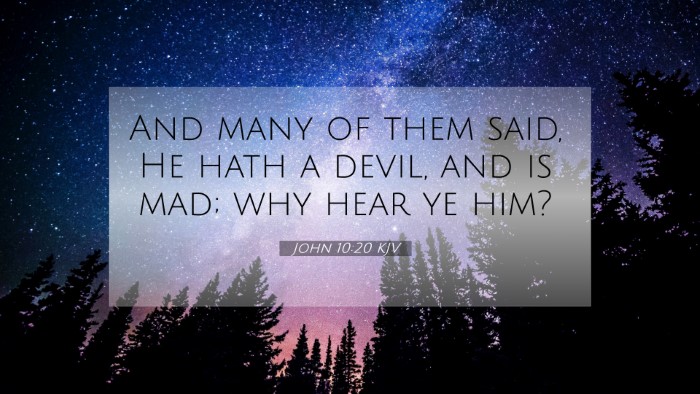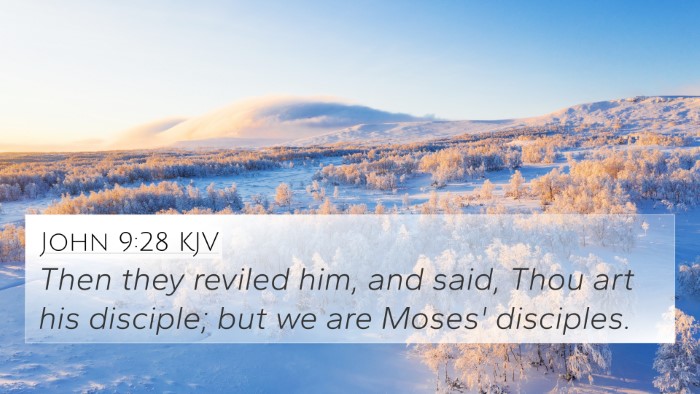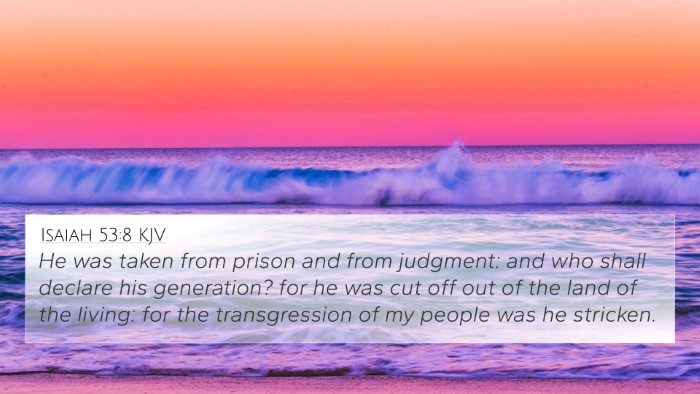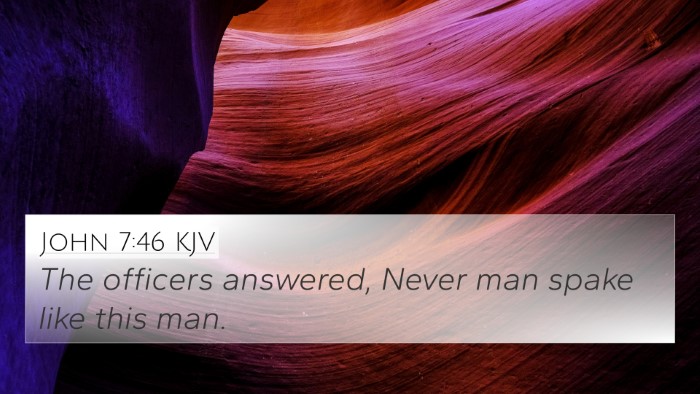Understanding John 10:20
John 10:20 reads, “Many of them said, 'He hath a demon, and is mad; why hear ye him?'” This verse presents a stark reality of the division among the people regarding Jesus' mission and nature.
The interpretation of this verse reveals significant themes within the Gospel of John, particularly concerning the identity of Christ and the reactions of those around Him. Insights from various public domain commentaries help shed light on this Bible verse.
Contextual Overview
In understanding John 10:20, it is essential to examine its surrounding context. This verse is situated within a discourse about Jesus as the Good Shepherd, which contrasts the genuine leadership of Christ with the false leadership of the Pharisees.
Commentary Insights
-
Matthew Henry’s Commentary:
Henry notes that this reaction of the people highlights the common theme of misunderstanding surrounding Christ’s claims. Despite His profound teachings and miracles, many still questioned His sanity, illustrating the spiritual blindness prevalent among the Jewish leaders.
-
Albert Barnes’ Notes:
Barnes explains that the accusation of being “mad” reflects the rejection of Christ by many within society. He emphasizes that such responses are not new and points to the challenges faced by prophets throughout history, where truth is often met with skepticism or ridicule.
-
Adam Clarke’s Commentary:
Clarke elaborates on the implications of being accused of having a “demon” by linking Jesus' apparent madness with the supernatural claims about Him. He highlights how labels such as this often arise from fear and misunderstanding of divine insight.
Thematic Connections
This verse intertwines with various biblical themes, including the rejection of truth, the identity of Jesus, and the spiritual blindness of humanity.
Here are some significant themes to consider:
- Rejection of Leadership: Similar to the experience of prophets like Jeremiah (Jeremiah 20:7) and Isaiah (Isaiah 6:9-10).
- Identity of the Messiah: References in Isaiah 53 illustrate the misunderstood nature of the coming Savior.
- Spiritual Blindness: 2 Corinthians 4:4 speaks of the god of this age blinding the minds of unbelievers.
Cross-References
Understanding John 10:20 is enriched through cross-referencing with other scripture. Here are some applicable Bible verses that relate to the themes found in John 10:20:
- Matthew 11:18 - "For John came neither eating nor drinking, and they say, 'He hath a devil.'”
- John 7:20 - "The people answered and said, 'You have a demon. Who seeks to kill you?'
- Luke 11:15 - "But some of them said, 'He casts out demons by Beelzebub, the ruler of the demons.'
- John 8:48 - "The Jews answered him, 'Say we not well that thou art a Samaritan, and hast a devil?'
- Isaiah 53:3 - "He is despised and rejected of men; a man of sorrows, and acquainted with grief."
- Matthew 12:24 - "But when the Pharisees heard it, they said, 'This fellow doth not cast out devils, but by Beelzebub the prince of the devils.'
- 1 Corinthians 1:18 - "For the preaching of the cross is to them that perish foolishness; but unto us which are saved it is the power of God."
- John 1:11 - "He came unto his own, and his own received him not."
- Mark 3:21 - "And when his friends heard of it, they went out to lay hold on him: for they said, He is beside himself."
- Acts 7:51 - "Ye stiff-necked and uncircumcised in heart and ears, ye do always resist the Holy Ghost: as your fathers did, so do ye."
Conclusion
John 10:20 serves as a poignant reminder of how Jesus was perceived during His earthly ministry and the challenges He encountered. By considering various commentaries and cross-references, we can grasp the depth of this scripture. It also encourages deeper study into the connections between biblical texts, providing invaluable insight for those engaging in comparative Bible verse analysis and cross-referencing Bible study methods.
Tools for Further Study
For those looking to dive deeper into the themes and connections inherent in this verse and others in scripture, various tools for Bible cross-referencing can aid in this exploration. Utilizing a Bible concordance or a Bible cross-reference guide can enhance understanding of Inter-Biblical dialogue and facilitate a comprehensive study of related scripture.















